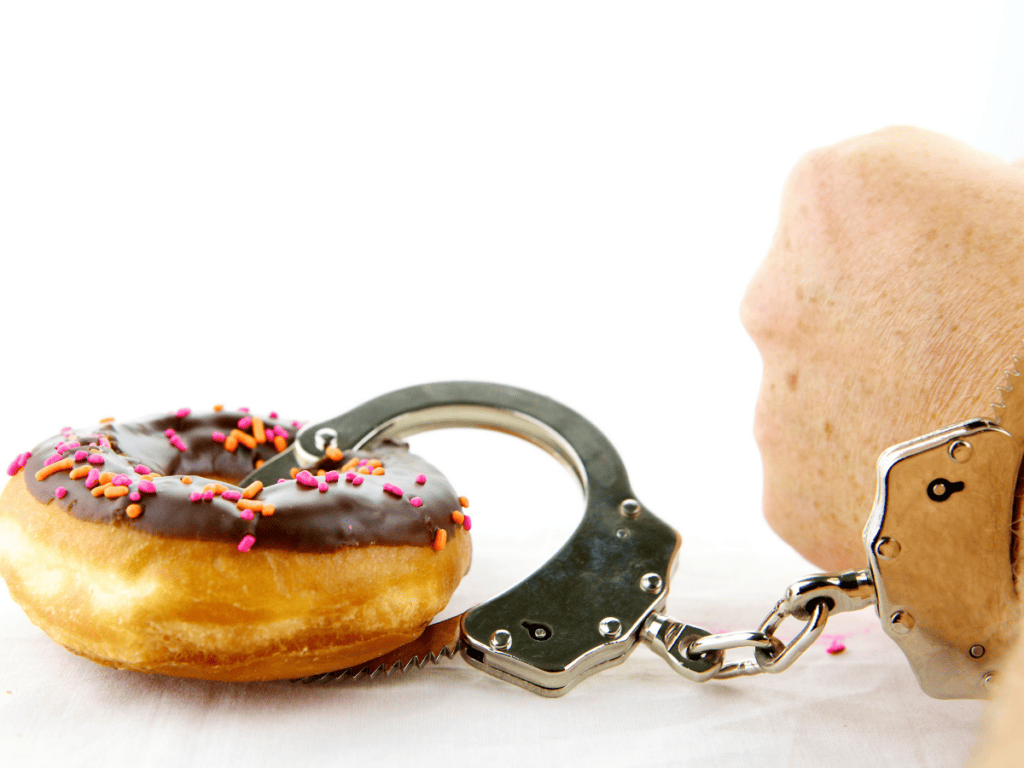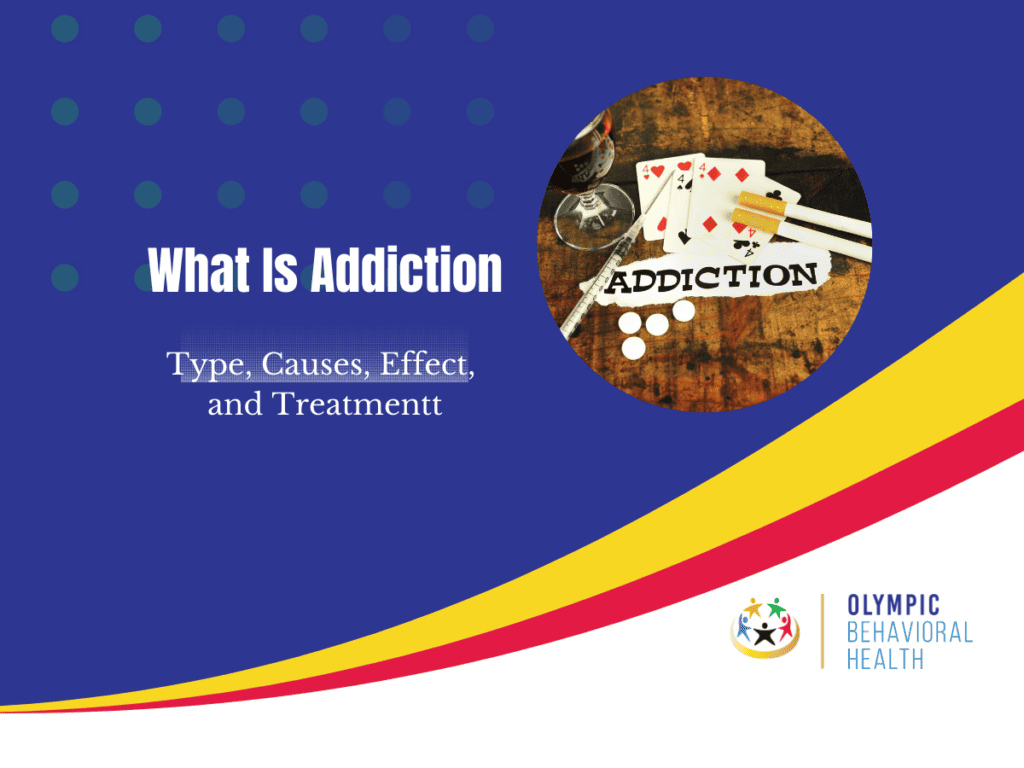Addiction is the compulsive consumption of substance or engagement in an activity despite negative effects. It is an overwhelming healthcare issue in the country.
There are two types of addiction; substance addiction and behavioral addiction. Regardless of the type, addiction is marked by a cycle of craving, consumption, or engagement, temporary relief or pleasure, and subsequent withdrawal symptoms or negative consequences.
Factors contributing to addiction include genetic predisposition, environmental influences, and underlying mental health conditions.
Key side effects of addiction include physical and pschological effects, financial strain, risk of accidents and injuries, and legal consequences.
Treatment typically involves a combination of medications, behavioral therapies, support groups, and lifestyle changes aimed at helping individuals manage cravings, address underlying issues, and maintain long-term recovery.
What is Addiction?
Addiction is a complex condition characterized by compulsive engagement in a particular activity or the consumption of a substance despite negative effects. The Addiction Policy Forum further defines addiction as a chronic, relapsing brain disorder that affects an individual’s behavior, cognition, and overall functioning.
At its core, addiction involves a strong and often uncontrollable craving for the substance or activity, leading to a persistent pursuit of it, even when it interferes with daily responsibilities, relationships, and health.
Repeated exposure to addictive substances and behavior causes significant changes to the structure and function of the brain, which results in a diminished ability to control impulses and make rational decisions.
Addiction usually presents in a cycle, regardless of the specific substance or activity involved. The cycle starts with craving and progresses through consumption or engagement, temporary relief or pleasure, and subsequent withdrawal symptoms or negative consequences.

Is Addiction a Disease?
Addiction is widely recognized as a disease by medical and mental health professionals. According to the American Society of Addiction Medicine, addiction is a chronic relapsing brain disorder characterized by compulsive engagement in a substance or behavior despite negative consequences. It is not a result of a lack of willpower. Studies show that the structure, chemistry, and function of the brain change with addiction. This view emphasizes the biological, psychological, and social factors contributing to addiction, highlighting its complex nature and the need for medical intervention, treatment, and support.
What are the Types of Addiction?
The American Psychiatric Association classifies addiction into two main groups:
- Substance Use Disorders (Substance addictions)
- Behavioral addictions (Non-Substance addictions)
Here’s a closer look at both types of addiction.
Substance Use Disorders
According to the Diagnostic and Statistical Manual of Mental Disorders (DSM-5) published by the American Psychiatric Association, substance use disorder is a pattern of symptoms an individual gets by consuming a substance despite negative effects. This paper also stipulates a criteria for the diagnosis of substance use disorder.
Commonly known as substance addiction, this disorder involves the addictive consumption of any substance that has addiction potential, regardless of whether they are prescription medications or non-medical substances.
These substances activate the reward center of your brain, and stimulate the release of dopamine, eliciting feelings of pleasure and instigating a desire for repeat consumption.
Here are a few substances that are capable of causing addiction:
- Alcohol
- Cannabis
- Caffeine (present in coffee and other everyday substances)
- Hallucinogens
- Inhalants
- Hypnotics, anti-anxiety drugs, and sedatives
- Prescription opioids and stimulants
- Non-prescription opioids and stimulants
- Tobacco/nicotine (including electronic cigarettes)
These substances all have different structures and effect, but they elicit the same response, albeit at different intensities, from the brain’s reward center. This response they elicit eventually leads to abuse of the substance, hence addiction. Substance use disorders vary in intensity, from mild to severe. Addiction is considered by experts to be the most severe form of substance abuse.
Behavioral Addictions
Behavioral addiction is the strong and uncontrolled desire to engage in an activity. People with behavioral addictions engage in these activities even when it starts to affect their daily relationships, health, and lifestyle. Behavioral addiction has the same effect on the brain’s reward system that addictive substances do.
However, there is much debate going on in psychiatry about what is considered a behavioral addiction. According to the Diagnostic and Statistical Manual of Mental Disorders, the only recognizable and diagnosable behavioral addiction is gambling disorder. Behavioral scientists insist that there are others; however, not enough research exists to consider them one. This does not mean that other activities do not have the potential to become addictive.
Below is a list of activities that have addictive potential:
- Eating
- Gambling
- Dieting
- Shopping
- Risky behaviors
- Exercises
- Pornography
- Having sex
- Internet gaming disorder
- Internet use.

What Causes Addiction?
Addiction does not have a single straightforward cause. It is a complex and chronic condition. However, there is a major commonality in the brain chemistry of people with any form of addiction.
Humans are intrinsically motivated to pursue rewards. Activities like spending time with loved ones or eating a favorite dessert cause the release of dopamine, a neurotransmitter that induces pleasurable feelings. This mechanism also supports the pursuit of survival activities.
The substances and activities listed above also elicit the release of dopamine, causing the desire to consume the substances or engage in the activity again. This unhealthy cycle changes the brain chemistry, and over time it becomes desensitized to their effects. Creating a need to consume more of the same substances or engage more in the action to get the same high.
Neglecting this desire leads to withdrawal symptoms which, in some cases, are strong enough to serve as motivation for the addiction.
Other factors that lead to addiction include:
- Genetics: People with first-degree relatives who have substance abuse disorder are more likely to get one.
- Mental health conditions: About 50% of people with mental health conditions develop substance abuse disorder.
- Environmental factors: Ease of access, exposure, and peer pressure increase the chances of developing an addiction Adverse childhood experiences also add to this possibility.
What Are The Effects of Addiction
Addiction affects various aspects of an individual’s life including physical health, mental well-being, and relationships. Some of the key effects of addiction include:
- Physical and mental health implications.
- Impaired cognitive functioning.
- Financial strain as people with this disorder compulsively spend on substances and activities.
- Risk of accidents and injuries.
- Interpersonal Challenges
- Legal and criminal consequences.
- Relationships
Addiction exerts a profound toll on individuals, families, communities, and society as a whole, highlighting the critical need for comprehensive prevention, intervention, and treatment efforts to address this complex issue.
How Are Addictions Treated?
Healthcare professionals treat addiction using a combination of the following treatment plans:
- Hospital management for people with severe withdrawal symptoms.
- Rehabilitation and counseling.
- Medications that reduce cravings and the effects of withdrawal symptoms.
- Support groups such as Narcotics Anonymous.
- Therapy.
What are the different types of addiction?
Substance addiction involves drugs, alcohol, nicotine, or prescription medications. Behavioral addiction includes activities such as gambling, gaming, internet use, shopping, or compulsive eating.
What is The Most Common Addiction
The most common addiction in the United States is alcohol use disorder. The second and third most common are nicotine and marijuana respectively.
Can addiction be prevented?
While not always preventable, education, building social support, addressing mental health issues early, and promoting policies that limit access to addictive substances help reduce the risk of addiction.
How is Hyponatremia related to Addiction?
Hyponatremia, also known as low sodium levels in the blood, is a dangerous health condition that can be related to addiction. It occurs when a person consumes excessive amounts of water, causing the sodium levels in their body to drop. This can happen in individuals with addiction who frequently binge drink or use drugs, as they often consume large amounts of water to help with dehydration.
As a result, their sodium levels can become imbalanced, leading to symptoms such as confusion, muscle weakness, and in severe cases, coma or death. It is important for individuals struggling with addiction to seek help and address underlying health issues such as hyponatremia to ensure a successful recovery. When you want to know more about hyponatremia and addiction, check out our article.
Get help for your Addiction
Addiction Treatment at Olympic Behavioral Health offers help and support for those struggling with addiction. Taking the first step can be difficult, but it is crucial to call for assistance. Our facility in West Palm Beach provides comprehensive addiction treatment programs to guide individuals towards recovery. If you or your loved one is battling addiction, reach out to Olympic Behavioral Health today.
Olympic Behavioral Health Drug Rehab
Olympic Behavioral Health Drug Rehab in West Palm Beach is a place where healing begins. With compassionate professionals and a state-of-the-art facility in West Palm Beach, we understand that overcoming addiction is challenging. The first step is calling us, and we will provide the help and support you need on your journey to recovery.

Share This Post



